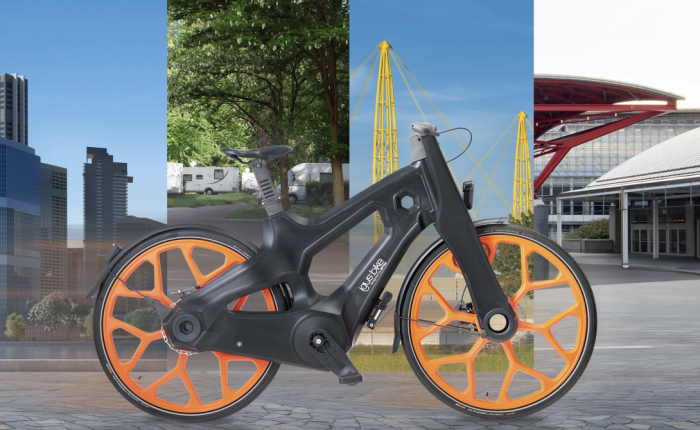The first 100 igus bicycles hit the road.

After extensive development, the igus:bike, a bicycle made of 92% high-recycled plastic, is now in mass production. The Dutch development partner, MTRL, is currently producing the initial 100 units in collaboration with igus. Concurrently, the plastic specialist is constructing its own production line in Cologne to increase capacities to 10,000 units over the next two years. This aligns with their sustainability vision to transition plastic waste into the circular economy for future urban mobility.
Approximately 3.5 years ago, Frank Blase, CEO of igus, initiated a sustainable project: utilizing plastic from global landfill mountains to create plastic bicycles. These durable and maintenance-free urban bikes are corrosion-free, weather-resistant, and designed to endure outdoor conditions for many years, not only revolutionizing mobility in cities but also finding applications in camping sites, hotels, exhibitions, and company premises. A win-win situation for both the environment and humanity. “I am pleased that we have now come a significant step closer to this vision,” says Frank Blase. The igus:bike is now hitting the streets in its first small-scale production under a new name, with the official branding announcement scheduled for Cyclingworld Europe (March 15-17, 2024) in Düsseldorf. Currently, MTRL is manufacturing 100 units in collaboration with igus. Upon road certification, prompt delivery is planned for the first of approximately 1,200 pre-orders. “To reduce waiting times for remaining orders, we are currently building our own production line for the bicycle at our Cologne facility. The goal is to produce 10,000 bicycles with expanded capacities,” says Sven Terhardt, Head of Sales & Marketing igus:bike. The price for the plastic bicycle is approximately €1,200.
The igus:bike, made of 92% plastic, faced some time-consuming optimizations before the start of mass production. The few parts that were previously made of metal in earlier prototypes, such as the saddle post or brake lever, are now also made of plastic in the current version. Additionally, engineers increased the handlebar’s turning angle for better maneuverability. New features include a freewheel in the drivetrain, allowing the wheels to turn without pedal movement, wear-resistant xiros ball bearings for smoother and quieter operation, and a dual stand for secure parking. “The igus:bike, weighing around 17 kilograms, is now made of 92% plastic, from the frame and bearings to the drivetrain, challenging industry norms that deemed this nearly impossible for a long time,” says Sven Terhardt.
The recycling rate is already at 50%, with igus and MTRL using rotational and injection molding techniques to manufacture bike components using granules from recycled plastic waste, including discarded fishing nets. Engineers and material experts have successfully reduced the proportion of newly mixed plastic to 50%. “We are now further investing in research and development to quickly increase the recycling rate to 75%, and eventually, 100%,” emphasizes Terhardt. “Through this high recycling rate, we are accelerating the circular economy for plastics, transforming plastic waste on the world’s landfills into an increasingly valuable resource.”
For more information, please visit: https://www.igus.de
News Categories
- » NEWS HOME
- » Automation & Robotics
- » Industry 4.0
- » Material Handling
- » Sensors
- » Quality & Testing
- » Machine Vision
- » Laser & Optics
- » Metalworking
- » Motion Control & Drives
- » Hydraulics & Pneumatics
- » Process Industry
- » Renewable Energy
- » Agriculture
- » Home & Office Furniture
- » Environmental Tech



